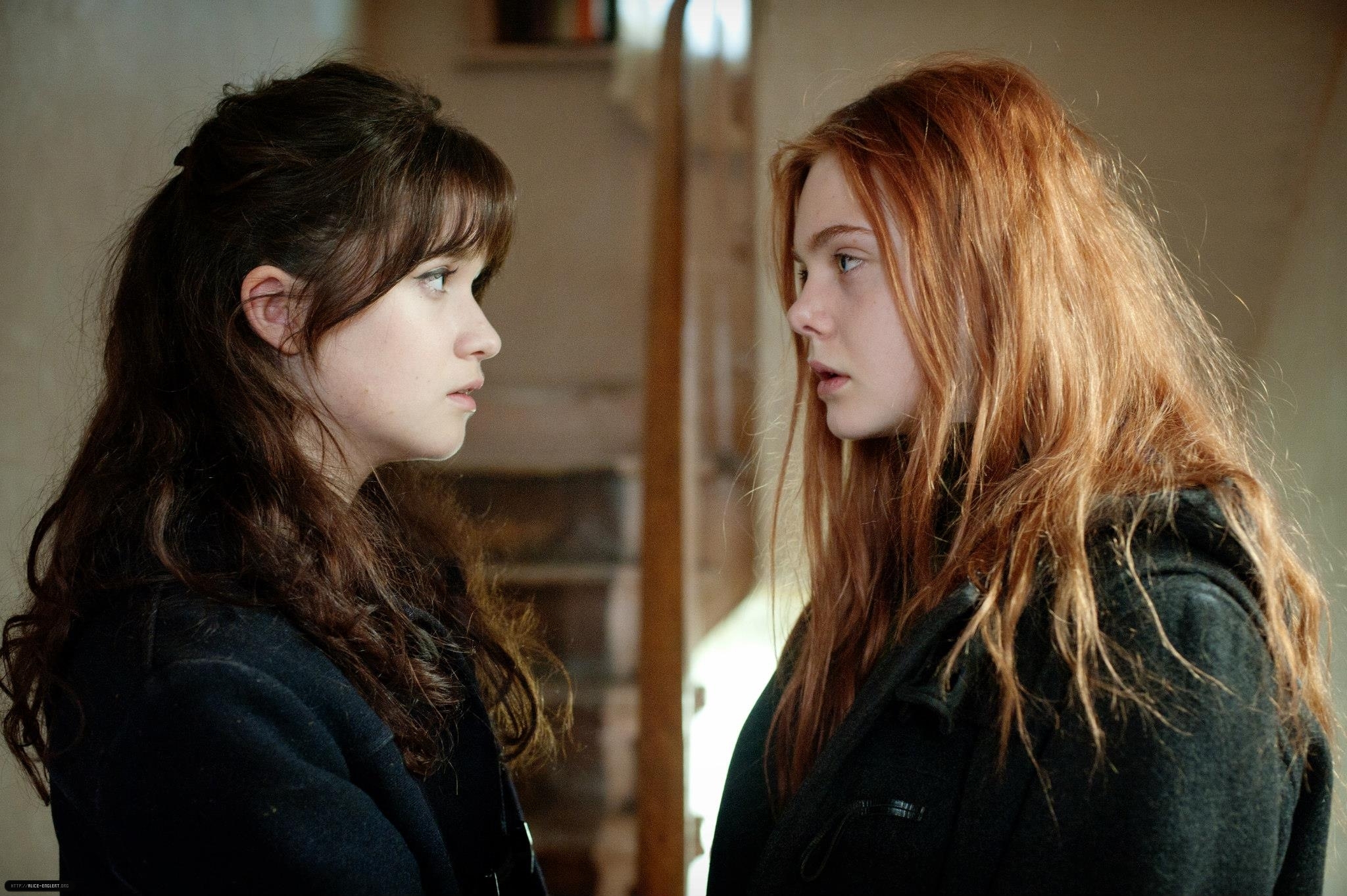Sally Potter’s “Ginger and Rosa” is a coming of age story
focusing on two British teen girls. It doesn’t necessarily cover new ground but
like Stephen Chbosky’s
wonderful 2012 movie ‘The Perks of Being a Wallflower,” it’s done in a
graceful, eloquent and nonoverdramatic way. Also like “Perks” Potter focuses virtually all of the attention
on the characters.
“Perks” and “Ginger
and Rosa” both center on the topic of living. Living life day by day, everyday
is a new experience. However, the two movies are vastly different. “Perks” is
about a group of teenage friends with emotional baggage trying to make the best
of their situations through having fun, whereas “Ginger and Rosa” is more about
straight up rebellion. The characters in “Rosa” don’t look like they’re having
much fun. Part of this has to do with the time that it’s set. “Perks” was set
during the 1990’s but “Rosa” is set in 1962, the time of the Cuban Missile
Crisis. The threat of nuclear annihilation looms in the air. The mood of the
film is colder and gloomy, even the scenes taking place during the day are dim.
The only time you really get a sense that fun is being had
is during the first fifteen or so minutes, when we’re introduced to Ginger
(Elle Fanning) and Rosa (Alice Englert), who have been friends since birth. We
see them smoke, go to a church service out of curiosity, make out with a couple
of guys, hitchhike, romp around on a beach and get scolded by their mothers for
staying out too late. This is the only time in the film when Ginger and Rosa
seem to enjoy being girls, indulging in the pleasures of youth. For the rest of the movie they’re trying to
be grownups
As that description of activities above may suggest, Ginger
and Rosa are restless as well as rebellious. They don’t respect their mothers
because they live a bland, domestic life. They want guidance but not in the
form of parental. That’s why Ginger responds more to her dad Roland (Alessandro
Nivola), an intelligent but pompous activist/teacher who says he was imprisoned
for his radicalism. He doesn’t play the traditional father role to Ginger but
lets her run free and teaches her about life and culture. However, he’s also
very charismatic and handsome and so Rosa becomes attracted to him.
It’s here where Ginger and Rosa’s friendship becomes
threatened and you see how different the two supposed friends are. They’re both
rebellious, sure, but rebellious in different ways. Ginger gets swept up in the
activism surrounding the Missile Crisis; you see her attending a few “anti
bomb” meetings and protests. She wants to save the world and that doesn’t
involve general schooling or having children, or learning how to cook. Rosa on
the other hand is more concerned with love. She’s captivated by Roland and his
intellect and thinks she can save his wounded soul. She has no idea of the
changing world around her.
In the end though--as in the case with most
adolescents—Ginger and Rosa are confused and don’t really know what they want.
Ginger keeps going on about how she doesn’t want to die by nuclear war because
she “wants to do things” but we don’t find out what those “things” are because
she doesn’t know. She wants to change things and yet she’s also extremely
pessimistic about the future and worried about the nuclear bombs. At times
she’s at the brink of hysteria. Rosa on the other hand is delusional in her
relationship with Roland. She says she can “fix” him and that they have so much
in common, but what exactly? She’s just attracted to his intelligence and his experiences
of things such as being in solitary confinement. Her mother had her when she
was a teenager and Rosa’s father was nonexistent, little does Rosa know she’s
heading down a similar path. For how simple Potter’s film is, it has a
surprising amount of depth.
As I’ve said before “Ginger and Rosa” is almost completely character
driven and so the performances pretty much make or break the film. While Englert
gives a wonderfully natural and mature performance, Fanning is the standout.
Even though it’s called “Ginger and Rosa” it’s more about Ginger, everything is
seen through her. Fanning gives an authentic, nuanced performance. She
perfectly captures a confused, angsty but also intelligent teenager (as she
should, since Fanning herself is fourteen). She’s the central force of the
movie.
3.5/4

No comments:
Post a Comment